C.S. Harris's Blog, page 25
October 16, 2012
For Word Lovers
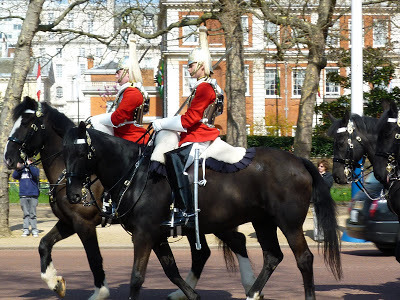
I recently stumbled upon a great blog called Not One-Off Britishisms (I'd provide the link, but Blogspot's new program is giving me fits, as usual. If you're interested, it's at britishisms.wordpress.com/) The author is an American, and his blog is dedicated to outing insidious Britishisms creeping into American English (something he finds vaguely despicable and utterly pretentious.) It makes for entertaining reading, especially for people like me whose own language has become hopelessly confused.
As a child, I attended a school taught half in Spanish and half in the Queen's English. I first moved to Australia in 1975 (Wow, typing that makes me feel old!), then to England. I spent 16 years married to someone who was educated in Britain and spoke the Queen's English; lived to Jordan where all my friends were Aussies and Brits, or Jordanians taught English by Brits; then moved to Australia and raised a couple of kids who spoke Aussie. If I wanted to be understood, I learned to adapt.
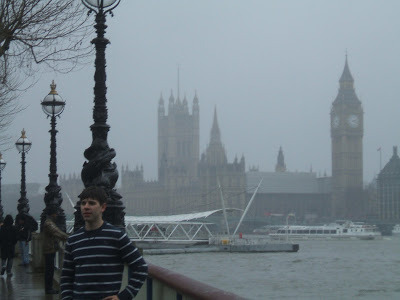
There were some words I always steadfastly refused to embrace: mum (I refuse to be a "mum"), bathers (bathing suit), and nappies (diapers) being the ones that come to mind, along with expressions such as "made redundant" (let go). Some I adopted but have since mostly dropped, such as bin (waste basket), tin (can), and crisps (potato chips, since what Americans call french fries are chips).
Others were either such delicious words, or else filled a gap in the language, that I refuse to part with them. Into this category fall whinging (sort of like whining, only subtly different), punch-up, car park (much easier to say than parking garage), fancy (as in, "I think she fancies him" or, "Fancy a hot fudge sunday?"), daggy, and knackered (the last two aren't exactly for polite company). Some are so useful, I've noticed Steve has also adopted them. For instance, what DO Americans call that strip between the sidewalk and the street? We call it "the council strip".
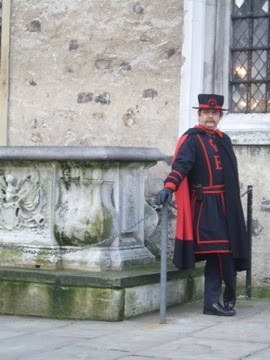
But what amazes me in reading NOOBS is the number of expressions or words I didn't even realized are Britishisms. Reading this blog is like an extended "oops" moment, even though I don't subscribe to its operating theory that using these words and expressions is pretentious. But as someone who employs words for a living, you'd think I'd be more aware of my own speech. Yet I did not realize the many, many words and expression I use that could sound pretentious or odd, and at times be incomprehensible to most listeners. Into this category fall proper (as in, make a proper spectacle of yourself), make a hash, on the back foot, dab hand, have a quiet word, cock-up, barman, sacked (fired), hang on (as in, "Hang on, are you telling me Americans don't say that?"), sorry (as in "I didn't hear that; could you please repeat it?).
Not that I plan to try to change, because language is a fluid thing, and we all add and lose expressions and words over the course of our lives. Still, if you love words, the blog makes for fun reading.
Published on October 16, 2012 10:20
September 25, 2012
Sebastian’s London: Camlet Moat

I’ve been thinking about starting something new: every once and a while, I'd like to write a profile of one of the London sites that appear in the Sebastian series. The obvious place to start is with Camlet Moat, which figures so prominently in When Maidens Mourn. Now just a shady, half-forgotten moat surrounding an abandoned island, it was once something much grander.Much of the history of Camlet Moat is lost in time. What we do know is that “Camlet” is an abbreviation of its original name, “Camelot,” that its origins date back to before the time when King Arthur may or may not have lived, and that there is something undeniably special about the site. For such a seemingly insignificant place, Camlet Moat has an intriguing number of weird associations. Yes, there really is an old well on the island, said to be associated with the grail maidens of yore. Sir Geoffrey de Mandeville really did own the castle or fortified house that once stood there, and the tales of his hidden treasure and the moat’s link to the mysteries of the Knights Templar persist to this day. It was once part of a royal forest hunted by Queen Elizabeth and, later, the infamous highwayman Dick Turpin did hang out here when not barking out his famous cry, “Stand and deliver!” Why the place isn’t better known is beyond me.At any rate, Camlet Moat still exists. If you travel to the northwest of London, you can even walk its quiet, sun-dappled banks because the old eighteen-century estate (much altered in the Victorian period, when Trent Place because Trent Park) is now open to the public. During World War II, captured Nazi generals were imprisoned here. You can’t make this stuff up…
Image courtesy of
Wikimedia
Published on September 25, 2012 09:51
Asocial

A recent confluence of events set me to thinking about social media this week. Few industries have embraced the trend with the enthusiasm of publishing. Once, authors were encouraged to establish websites. These days, I can't imagine an author without one (although there are a few). Then came blogs, but they've largely been made obsolete by Facebook and Twitter, and it's reaching the point that many publishers don't even consider those two optional anymore.
Now, I actually like blogging. I started this blog nearly seven years ago, when we were still reeling from Hurricane Katrina and I had a lot to say. I don't post as often these days, but I still enjoy it. I am officially on Facebook, but I almost never post on it because I can never think of anything to say. Someone told me recently that Facebook is like cocktail party chat, and I thought, Ah, that explains it; I've always been lousy at parties. And if you can't think of something to say on Facebook, then you really can't think of anything to say on Twitter!
But here's a dirty little secret almost no one talks about: most of the bestselling authors so visible on Twitter and Facebook don't actually write their own posts. That's right; they hire someone to basically impersonate them on line. I understand why they do it; the publishers are so insistent. But keeping up with social media takes time. The more followers you have, the more time it takes to respond to all of them, and that's time a writer should be spending writing. So in desperation, they turn to assistants. Yet there's a level of dishonesty at work here that seriously disturbs me. I keep thinking of all the millions of readers out there, trustingly following their favorite authors on Facebook and Twitter, convinced they're getting to know those authors, and it's all just a hoax. Pay no attention to the assistant behind the curtain...
Yes, there are some bestselling authors on Facebook who really are on Facebook: Catherine Coulter is one who comes to mind. But I could name dozens of authors whose on line presence is really a paid assistant. I've no doubt the same thing is even more true of actors and musicians.
So what do you think? Is this just a giant hoax that everyone is in on and therefore it's okay? Is it all symptomatic of something disturbing? Or am I just being crabby?

Photos courtesy of my daughter Danielle.
Published on September 25, 2012 00:42
September 14, 2012
Galleys!
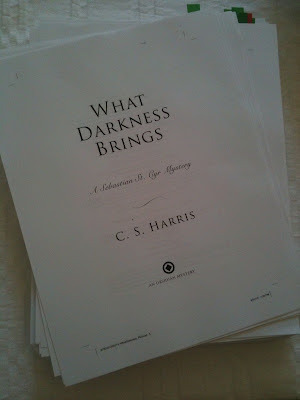
The page proofs for the next Sebastian book, What Darkness Brings, arrived on my doorstep this week. Galleys are, for the author, the last stage in a novel's long path from manuscript to printed book. At this point, I've addressed my editor's suggestions, reviewed the copy edited pages, given my (limited) input into the cover, and helped write the "cover copy" that tells prospective readers what the book is about. This is the last time I'll see a book before it is published (and yes, sometimes changes are made by someone after I see the galleys, sigh).
"Galley proofs" get their name from the days of hand-set type, when print was manually set up, page by page, in metal trays known as "galleys." "First pass pages" would be run off, which were sent to the editor and author to check for errors. Any necessary corrections would then be made by the printer before the final copies were produced. Of course, these days, most of this is done electronically, but thank heavens I still get actual paper pages to look at, because I have a hard enough time spotting errors as it is, without the added difficulty of trying to read a manuscript on a screen. Most authors will tell you that the brain has a terrible tendency to see what it expects to be there, not what actually is there.
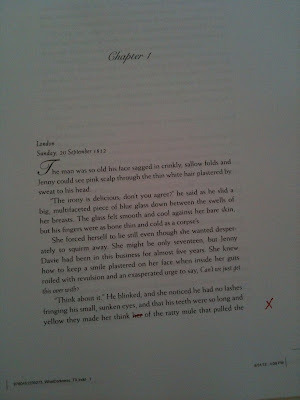
Galleys can be frustrating, since when they arrive I have to stop work on the book I am currently writing and turn away for a few days to do something else (particularly frustrating this time since I just lost over a week to Isaac). But since I know my readers are looking ahead to this book, and not even thinking about Why Kings Confess, which is my own focus at the moment, I thought you might enjoy seeing that things are progressing!
On a side note, one of my readers sent me a link to some more of my covers. These are some Russian editions of one of my romances--another red Midnight Confessions. Thank you, Irin!



Published on September 14, 2012 12:28
September 1, 2012
A Lost Week

Hi all! It's been a miserable week, but we were amongst the fortunate. Far too many of the surrounding parishes are still battling floodwaters. (Remember the plantation where Steve and I spent that wonderful retreat weekend? It was in Plaquemines Parish. I haven't heard if it survived.) Our losses are simply a fence, part of the garage roof, a lemon tree (loaded with lemons), and my beautiful 25-foot orchid tree (which luckily fell AWAY from the house). With 18 inches of rain in 24 hours (plus lots more rain the day before and the day after), there was one point where the drains were overwhelmed and the water started creeping from the street toward the house. One advantage to not evacuating is that because you are home, you can clean the debris from the storm drains in front of your house. One of the disadvantages to not evacuating is that you find yourself out in the middle of a hurricane with water swirling around your knees as you try to clean clean debris from the storm drains in front of your house.

We are amongst the lucky few who now have power. At about ten o'clock last night, just as we were contemplating trying to go to sleep without air conditioning on a hot, sticky, airless night, our electricity blinked back on. A rousing cheer--reminiscent of the night the Saints won the Superbowl--echoed around our little neighborhood. Something like 80% of the city is still without power. One takes his life in his hands venturing out to find ice and food (can I just say that I'm getting really sick of PB&J sandwiches?), since most streetlights are still out and major intersections--think eight lanes--have simply turned into four-way stops.
I have written almost nothing in the past week. Sunday and Monday went to storm preparation. I think I managed to scribble 4 pages on Tuesday before the winds got so high that I couldn't focus. Then it was too dark (no electricity+storm shutters on the windows=dark house), and I spent most of my time simply listening to our little hand-cranked radio (note to self: buy new batteries before the next storm). We've spent the last couple of days trying to clean up, and it will probably take at least another week. Now that we have power, we can get to work cutting up the downed trees and trying to do something about the downed fence. Everything is still such a mess; hurricanes strip the leaves (and lots of branches) off the trees and plaster them everywhere. You can barely see the walk to my front gate buried beneath the leaves and trash:

In the past, here in south Louisiana, we tended to sneer at Category One hurricanes, with people saying, "It's just a Cat One." I don't think we'll do that again.
Published on September 01, 2012 08:38
August 26, 2012
Sigh...

The timing of this one is particularly lousy, since it's expected to make landfall on the seventh anniversary of a certain, memorable event. I tried a couple of days ago to compose my annual Katrina post. In preparation, I reread my past years' musings and was rather stunned to find myself sitting at my computer and sobbing. Obviously, I'm not as "over" it all as I thought I was.
Fortunately, Isaac is only expected to come ashore here as a Cat 2, although a rather wide, nasty one. And it's so disorganized and unpredictable that it may well go in someplace else. But, just in case, we spent the day closing our fancy new hurricane shutters (for some reason they've swelled since we had them installed last year, which explains why, ahem, they tell you to test your shutters at the beginning of hurricane season), cleaning out gutters, stockpiling water, and making sure anything that might blow around is tucked in tight. We're not evacuating, thank God. (I am sooo not in the mood for that.) But the city-wide buzz of anxiety makes it hard to settle down and do anything like, well, write.
At any rate, I've stockpiled everything I need to make it through the next few days...

Published on August 26, 2012 18:51
August 23, 2012
A Rose by Any Other Name
We hear all the time that there are legions of men out there who won't buy a book written by a woman. It's why Joanne Rowling published the Harry Potter series as "J.K."; she knew boys would be less inclined to pick up her books--even though they're about a boy wizard--if they had a female author's name on the cover. Ask your typical male for his favorite books, and he'll inevitably give you a list written by male authors. When there's a woman on the list, it's usually Harper Lee, and an astonishing number of those men who cite her don't realize that the ambiguously-named author of To Kill a Mockingbird is actually a woman.
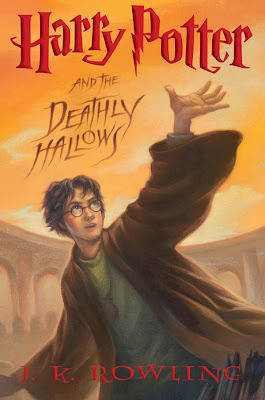
For a long time, I thought this prejudice worked from the male side only, since despite the fact that a huge majority of both book readers and book buyers are women, books written by men still make up the vast majority of best sellers. Obviously, women are more willing to buy books written by men than men are to buy books written by women. The gender distribution on the bestseller list is changing, slowly. But readers still have a lot of expectations and prejudices when it comes to an author's gender, and it seems that female authors aren't the only victims.
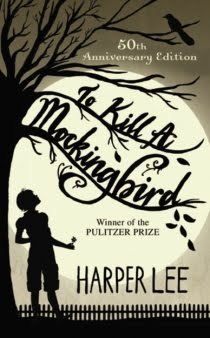
I was surprised the other day when a good writer friend of mine mentioned off-handedly that she rarely read books written by male authors. "I find they don't usually delve into emotion and character interaction the way I like." Now, I knew this woman loves to read what she calls "girlfriend books" and books that focus on interactions within families; in other words, the kind of angsty, meandering, introspective books that have a tendency to send me running for the hills while screaming "Nooooo!" But I'd always assumed she chose her books by subject; I didn't realize that at some point she'd consciously come to the conclusion, "I don't like books written by men."
Now, this might strike many of you as one of those "Well, duh!" moments (I have a lot of those). But the fact is, while much has been written about MEN not reading books written by women, we don't hear so much about the reverse.
In thinking over my own reading history, I can honestly say that I read books written by both genders. Yet I refuse to buy a love story written by a man unless I know in advance it ends happily (no Bridges of Madison County, The Notebook, or Cold Mountain for me. Seriously; what is it with you guys? Afraid that if a couple live "happily ever after," critics will think you write like a girl?). And--the ultimate irony--I'm also leery of suspense and thrillers written by women, largely because I've found in the past that they generally don't give me what I'm looking for. That said, though, I'm always open minded. (Or at least, I try to be.)
Interestingly, my friend revealed her thoughts on male authors because she was in the middle of reading a book, written by a man, that was giving her all the emotion and character interaction she craved and normally assumed she wouldn't find in book with a male name on the cover.
So what about you? Do you find that you have expectations based on an author's gender? Does an author's gender influence your buying habits, and if so, in what way?

For a long time, I thought this prejudice worked from the male side only, since despite the fact that a huge majority of both book readers and book buyers are women, books written by men still make up the vast majority of best sellers. Obviously, women are more willing to buy books written by men than men are to buy books written by women. The gender distribution on the bestseller list is changing, slowly. But readers still have a lot of expectations and prejudices when it comes to an author's gender, and it seems that female authors aren't the only victims.

I was surprised the other day when a good writer friend of mine mentioned off-handedly that she rarely read books written by male authors. "I find they don't usually delve into emotion and character interaction the way I like." Now, I knew this woman loves to read what she calls "girlfriend books" and books that focus on interactions within families; in other words, the kind of angsty, meandering, introspective books that have a tendency to send me running for the hills while screaming "Nooooo!" But I'd always assumed she chose her books by subject; I didn't realize that at some point she'd consciously come to the conclusion, "I don't like books written by men."
Now, this might strike many of you as one of those "Well, duh!" moments (I have a lot of those). But the fact is, while much has been written about MEN not reading books written by women, we don't hear so much about the reverse.
In thinking over my own reading history, I can honestly say that I read books written by both genders. Yet I refuse to buy a love story written by a man unless I know in advance it ends happily (no Bridges of Madison County, The Notebook, or Cold Mountain for me. Seriously; what is it with you guys? Afraid that if a couple live "happily ever after," critics will think you write like a girl?). And--the ultimate irony--I'm also leery of suspense and thrillers written by women, largely because I've found in the past that they generally don't give me what I'm looking for. That said, though, I'm always open minded. (Or at least, I try to be.)
Interestingly, my friend revealed her thoughts on male authors because she was in the middle of reading a book, written by a man, that was giving her all the emotion and character interaction she craved and normally assumed she wouldn't find in book with a male name on the cover.
So what about you? Do you find that you have expectations based on an author's gender? Does an author's gender influence your buying habits, and if so, in what way?
Published on August 23, 2012 08:08
August 5, 2012
SOLA's 2012 Writers' Retreat

This past weekend our local RWA chapter, SOLA, held its annual writers' retreat at a wonderful old plantation house down in Plaquemines Parish. Steve and I volunteered to give a workshop we entitled "Secrets from the Bestseller List," which was basically an examination of certain characteristics all bestselling books (even the most godawfully written ones) have in common, and what writers can learn from them.

This was SOLA's first time at Woodland, built in the 1830s and the only plantation house south of New Orleans still standing on the west bank of the Mississippi. The hotel is advertised as "rustic," which makes it sound considerably rougher than it is. The old house has been plumbed and wired with electricity (it wasn't when the present owners bought it back in 1997!), and while I wouldn't call the accommodation slick, it's more than comfortable. And in terms of ambiance, it is simply unbeatable. The sense of staying in an old home, as opposed to a hotel, is very real. Guests have the run of the entire plantation house, which consists of the central hall...

a large conference room....
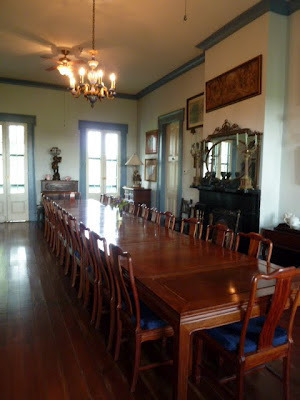
and nine original bedrooms.

The house is considerably larger than it looks from the outside, probably because the 14 foot ceilings fool the eye and distort the perspective. The office, kitchen and restaurant are in what was once an old nineteenth century church...
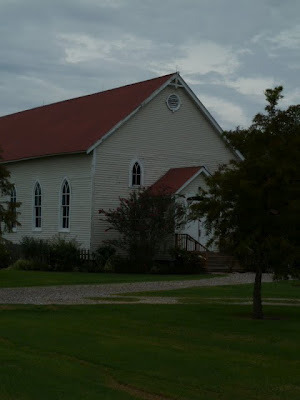
And I am not exaggerating when I say the chef is world class. Steve and I stayed an extra night by ourselves and enjoyed a six course meal so exquisite we've decided it would be worth making the drive down to Woodland some evening simply for the restaurant.
If you think the plantation looks vaguely familiar, that's because a print for the old house is on the label of Southern Comfort bottles. Sunday morning, before we left, Steve and I went for a walk toward the nearby river, and came upon this sign...

Published on August 05, 2012 15:17
July 30, 2012
Foreign Covers
So I was playing around on my iPad while watching the Olympics last night, and I came across this foreign cover of one of my books...
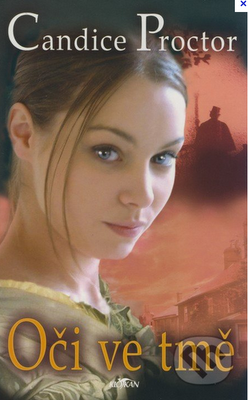
I'd never seen it before and assumed it was a reprint of one of my romances. But when I investigated, I discovered it's actually the Czech edition of What Angels Fear! That's right: the Czechs obviously published my Sebastian series under my own name. Who knew? Certainly not me.
So I kept poking, and found a new cover from my French publishers, who recently reissued Midnight Confessions. Gorgeous.
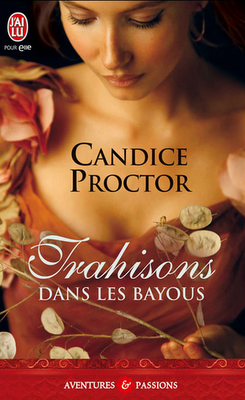
Here are a few more. The first one is Beyond Sunrise...
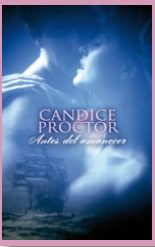
The next is another Midnight Confessions (this book always seems to inspire a red cover)...
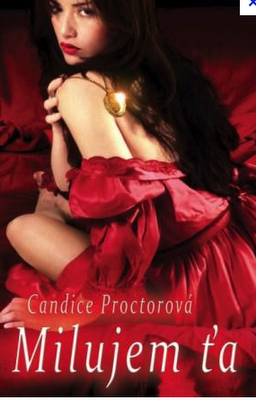
And I assume this is The Last Knight, since there's a knight on the cover, and I've only had the one medieval setting...

I'm still waiting for my editor to give the go ahead for me to show the cover of What Darkness Brings. Hopefully soon...

I'd never seen it before and assumed it was a reprint of one of my romances. But when I investigated, I discovered it's actually the Czech edition of What Angels Fear! That's right: the Czechs obviously published my Sebastian series under my own name. Who knew? Certainly not me.
So I kept poking, and found a new cover from my French publishers, who recently reissued Midnight Confessions. Gorgeous.

Here are a few more. The first one is Beyond Sunrise...

The next is another Midnight Confessions (this book always seems to inspire a red cover)...

And I assume this is The Last Knight, since there's a knight on the cover, and I've only had the one medieval setting...

I'm still waiting for my editor to give the go ahead for me to show the cover of What Darkness Brings. Hopefully soon...
Published on July 30, 2012 20:53
July 23, 2012
What Darkness Brings
I don't think I posted this before. At any rate, here is the cover copy for What Darkness Brings, book number eight in the Sebastian St. Cyr series.
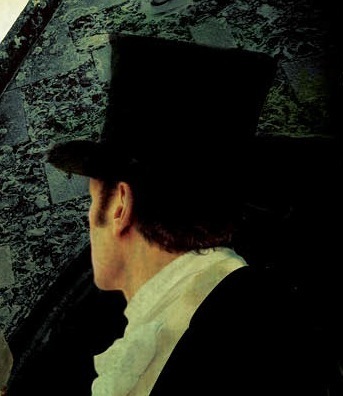
The death of a notorious London diamond merchant draws aristocratic investigator Sebastian St. Cyr and his new wife Hero into a sordid world of greed, desperation, and the occult, when the husband of Sebastian’s former lover Kat Boleyn is accused of the murder.
Regency England, September 1812: After a long night spent dealing with the tragic death of a former military comrade, a heart-sick Sebastian learns of a new calamity: Russell Yates, the dashing, one-time privateer who married Kat a year ago, has been found standing over the corpse of Benjamin Eisler, a powerful gem dealer. Yates insists he is innocent, but he will surely hang unless Sebastian can unmask the real killer.
For the sake of Kat, the woman he once loved and lost, Sebastian plunges into a treacherous circle of intrigue. Although Eisler’s clients included the Prince Regent and the Emperor Napoleon, he was a despicable man with many enemies and a number of dangerous, well-kept secrets—including a passion for arcane texts and black magic. Central to the case is a magnificent blue diamond, believed to have once formed part of the French crown jewels, which disappeared on the night of Eisler’s death. As Sebastian traces the diamond’s ownership, he uncovers links that implicate an eccentric, powerful financier named Hope and stretch back into the darkest days of the French Revolution.
As the killer grows ever more desperate and vicious, Sebastian finds his still-new marriage to Hero tested by his loyalty to his first love, especially when Sebastian begins to suspect that Kat is keeping secrets of her own. And when matters reach a crisis, Sebastian must face a bitter truth—that he has been less than honest with the calm, fearless woman who is now his wife.

The death of a notorious London diamond merchant draws aristocratic investigator Sebastian St. Cyr and his new wife Hero into a sordid world of greed, desperation, and the occult, when the husband of Sebastian’s former lover Kat Boleyn is accused of the murder.
Regency England, September 1812: After a long night spent dealing with the tragic death of a former military comrade, a heart-sick Sebastian learns of a new calamity: Russell Yates, the dashing, one-time privateer who married Kat a year ago, has been found standing over the corpse of Benjamin Eisler, a powerful gem dealer. Yates insists he is innocent, but he will surely hang unless Sebastian can unmask the real killer.
For the sake of Kat, the woman he once loved and lost, Sebastian plunges into a treacherous circle of intrigue. Although Eisler’s clients included the Prince Regent and the Emperor Napoleon, he was a despicable man with many enemies and a number of dangerous, well-kept secrets—including a passion for arcane texts and black magic. Central to the case is a magnificent blue diamond, believed to have once formed part of the French crown jewels, which disappeared on the night of Eisler’s death. As Sebastian traces the diamond’s ownership, he uncovers links that implicate an eccentric, powerful financier named Hope and stretch back into the darkest days of the French Revolution.
As the killer grows ever more desperate and vicious, Sebastian finds his still-new marriage to Hero tested by his loyalty to his first love, especially when Sebastian begins to suspect that Kat is keeping secrets of her own. And when matters reach a crisis, Sebastian must face a bitter truth—that he has been less than honest with the calm, fearless woman who is now his wife.
Published on July 23, 2012 19:38



